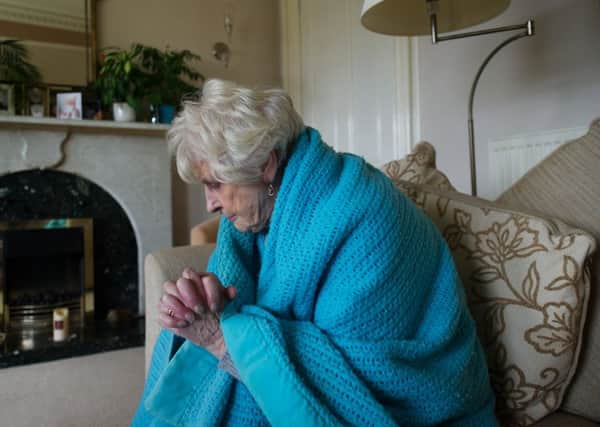Lord Foulkes: Reach out to help loder people suffering from loneliness


Loneliness is not only a problem for older people. Pupils can be shunned at school, adults given the cold shoulder by friends and family. But older people are often more likely to be affected because so many of the causes of isolation – bereavement, children moving away, retirement, mobility problems and cognitive or sensory impairments – occur in later life.
One in ten older people – more than100,000 Scots – say they feel lonely all of the time. Half of over-75s now live alone, and most of them say that their main form of company is a pet or their TV. And up to 40,000 older Scots will be alone on Christmas Day.
Advertisement
Hide AdAdvertisement
Hide AdLong-term loneliness can lead to stress, anxiety and depression. It can also raise blood pressure, increase risk of heart attacks and some cancers. And it has behavioural effects, reducing activity and exercise, and stirring cynicism and resentment.
Age Scotland has made tackling loneliness one of our strategic priorities. Our national freephone telephone helpline, 0800 12 44 22, offers friendship and contact as well as information and advice. We connect people to local groups they can participate in or who can arrange visits, and are giving out £75,000 this year in small grants to community organisations for activities like outings and lunches to bring older people together.
But we also need others to help. A parliamentary inquiry last year – the first of its kind worldwide – investigated isolation and recommended change. There’s now a Government commitment to a national strategy, which must align policies and practices by public bodies like the NHS and councils to recognise the symptoms and respond appropriately. And everyone can think about how to connect better with older people they know or live beside.
Lord Foulkes of Cumnock is chair of Age Scotland